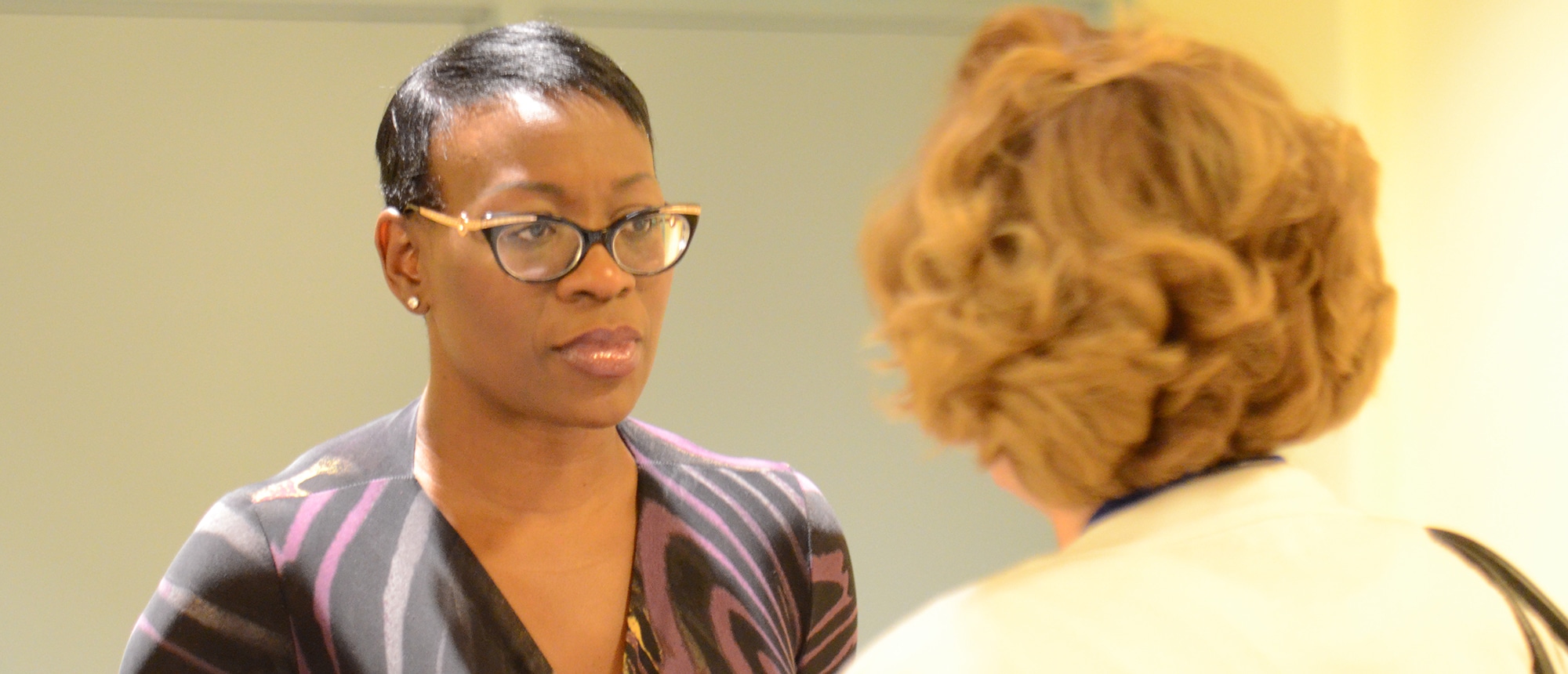Senator Nina Turner On Education And The Ongoing Fight For The Populace
“What you are seeking is seeking you” — a popular quote Turner mentioned spur-of-the-moment when asked what motivated her to run for office. “I never saw myself running for office, but as my life began to unfold and I had different exposure, I saw the power of public policy and what strong, committed people, especially strong personalities, could really do with the bully pulpit — to both push policy and make a difference in the lives of individuals.”
Turner served in the cabinet of Cleveland Mayor, Michael R. White, in 1999 and was the Director of Government Affairs for the Cleveland Municipal School District shortly thereafter. In 2001, Turner made an unsuccessful run for the Cleveland City Council, yet would later win her second bid for the city council in 2005.
Her time in office and her life experiences played a key role in molding her worldview and developing her political philosophy.
Turner’s Thoughts on Education
“In some ways, I feel like I’ve been a public servant all of my life,” stated former State Senator Nina Turner, affectionately looking back on her past. Turner, being the eldest child of seven, took on a number of responsibilities after her mother’s unexpected passing at the age of forty-two while Turner was a Sophomore at Cuyahoga Community College in Cleveland, Ohio.
“I was just struggling, I was a wife, mother, and now all of a sudden I have six other people to be responsible for — with no money. So, it was really that moment, Walter, I had an epiphany, if you will, that I was going to do my level best to finish college myself and to go on to a four-year university, and to get my college degree for my mother’s memory, even though she wasn’t here to see any of that, I wanted to make her proud even in death.”
When asked what makes her so passionate about the importance of education, Turner continued:
“[My situation] gave me a sensitivity to the plight of poor people because I did grow up in a working-class family, but we were very poor and it made me really sensitive. Because education helped change my life, I do believe if people have the opportunity, that education can do the same thing for them and help more [people] become cycle breakers. That gave me my heart connection to education.”
When asked her opinions on how the United States can solve the challenges currently facing the education system, she thoughtfully replied:
“I think that the system of education is not necessarily in tune with the needs of the 21st-century learner, that in some ways we do not [in traditional public schools] have the ability to be as creative as necessary to deal with the needs and, in some cases, the trauma that so many of our young people have to deal with at a very young age.”
Turner later detailed exactly how she would like to see the United States approach education in the modern world:
“I would love to see a public-private commitment, a renaissance if you will, for K-12 education and also for us to adopt [as a nation] a K-16 model because we know in the 21st-century these young people need more than a high school diploma to compete with their peers from all over the world. If we are going to keep our competitive edge as a nation we will have to take a deep look into this and also move into action at the federal, state, and local level.”
Importance of After School Programs and the Community
Nina Turner continued, “We need more wraparound services in these schools,” which are systems that provide social workers, nurses, healthcare, make sure children have extracurricular activities, and ensure children have decent meals at school and their homes. Turner acknowledged that while these services may seem like an unfair burden, that it is important children have an environment in which they can thrive.
“We have to make sure we don’t cut art and sports programs,” Turner began, before explaining how cutting extracurricular activities for children affected her family.
“That happened to one of my nephews, who went to a school in a suburban community in Cleveland, [his mom] my sister had to pay a fee for him to be able to participate in extra circular activities, and she is a single mom and that was a burden on her. But if you take away extra circular activities so many young people wouldn’t even come to school.”
[…] We do have to decide as a nation whether or not we are going to invest dollars, but also invest concentration, in our effort to create the types of programming that help our children overcome [any] challenges they may have at home or any challenges they may have in the community.”
Turner continued, “That’s not only urban areas — that’s also our rural communities too — so many are fighting this opiate crisis, so it may not be guns and violence, but they are fighting a different kind of crisis.” She finished her thought by saying, “I’m not so sure our commitment as a nation is really keeping pace with the needs of our young people [who], through no fault of their own, may have been born to a family, or born to a community, that they need to succeed are really not there and the only hope that they have is education.”

